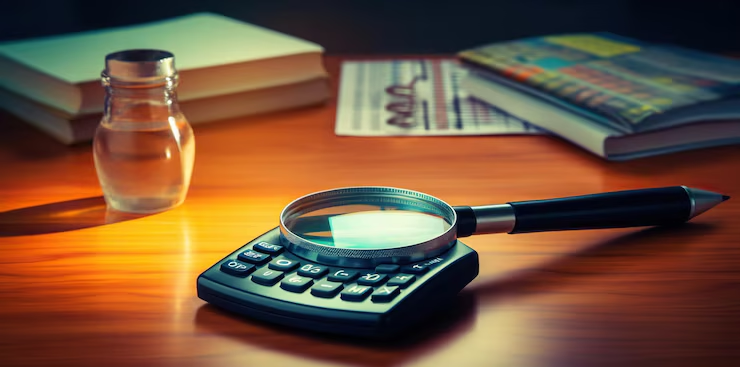In today’s complex business environment, safeguarding financial integrity is paramount. Whether you’re a business owner, legal professional, or an investor, understanding the accuracy of financial statements is critical for making informed decisions. Forensic accounting audits are a specialized area of accounting designed to uncover financial fraud, mismanagement, and irregularities. These audits go beyond traditional financial audits to identify and investigate potential illegal activities or unethical practices.
A forensic accounting audit is not just about verifying numbers; it’s about unraveling the financial story that lies beneath the surface. In this blog, we will explore the importance of forensic accounting audits, the processes involved, how they can help protect your interests, and how you can secure your financial integrity with the right professional services.
What is Forensic Accounting?
Forensic accounting is the application of accounting principles and investigative techniques to detect and prevent fraud, financial mismanagement, and other financial discrepancies. The primary goal of forensic accounting is to uncover the truth behind financial records and transactions, making it a crucial tool for businesses, individuals, and legal professionals.
Forensic accountants often work with law enforcement agencies, legal teams, and businesses to identify financial misconduct, such as embezzlement, money laundering, bribery, tax evasion, and more. Their work is often used in legal proceedings as evidence in civil or criminal cases.
Unlike regular audits that focus primarily on verifying the accuracy of financial statements, forensic accounting audits are designed to dig deeper into financial records to find irregularities, uncover fraudulent transactions, and determine if any illegal activity has taken place.
The Importance of Forensic Accounting Audits
Forensic accounting audits are crucial for a wide range of reasons. They help ensure transparency, identify potential risks, and protect the financial interests of individuals, businesses, and organizations. Here are some of the main benefits:
- Detecting Fraud: One of the most common reasons businesses opt for a forensic accounting audit is to detect fraud. Whether it’s internal fraud committed by employees or external fraud by vendors or third parties, forensic accountants use specialized techniques to spot fraudulent activity.
- Preventing Financial Mismanagement: Forensic accountants not only identify existing financial discrepancies but also help prevent potential issues by uncovering weak points in an organization’s financial systems. Early detection allows businesses to take corrective action before problems escalate.
- Strengthening Internal Controls: A forensic accounting audithelps businesses evaluate the effectiveness of their internal controls. It identifies vulnerabilities in the system that could allow fraudulent activity to occur. By addressing these weaknesses, companies can strengthen their internal controls and reduce the risk of financial misconduct in the future.
- Litigation Support: In cases involving financial disputes, such as divorce settlements, insurance claims, or shareholder disputes, forensic accountants provide crucial support by analyzing financial records and providing expert testimony in court. Their findings can help resolve complex legal cases and disputes.
- Safeguarding Reputation: Financial scandals and fraud can severely damage a company’s reputation. By investing in forensic accounting audits, businesses can proactively address potential issues and protect their brand image, reassuring clients, investors, and stakeholders.
- Tax Compliance: Forensic accounting auditshelp ensure that companies comply with tax laws. By reviewing financial records, forensic accountants can identify potential tax evasion schemes, providing businesses with an opportunity to correct any errors before they result in penalties.
- Mergers and Acquisitions: In mergers and acquisitions (M&A), forensic accountants conduct thorough due diligence to ensure the financial health and integrity of the target company. This process helps buyers make informed decisions and avoid acquiring companies with hidden financial liabilities or fraud.
The Forensic Accounting Audit Process
The forensic accounting audit process involves a systematic approach to investigating financial records and identifying discrepancies. Here are the key steps involved:
- Initial Assessment and Planning
The first step in a forensic accounting audit is the assessment of the scope and objectives of the investigation. The forensic accountant works closely with the client to understand the purpose of the audit, the specific areas of concern, and the desired outcome. This phase involves gathering preliminary information, reviewing financial statements, and identifying potential risks or red flags.
- Data Collection and Review
The next step is the collection of relevant financial data. Forensic accountants gather financial records, such as balance sheets, income statements, tax returns, bank statements, and transaction histories. This data is then thoroughly reviewed to identify inconsistencies or unusual patterns. Forensic accountants use specialized software tools to analyze large volumes of data and uncover hidden financial activities.
- Investigation and Analysis
Once the data is collected, forensic accountants begin the investigation phase. They perform in-depth analysis to uncover irregularities, such as fraudulent transactions, embezzlement, misappropriation of funds, or other financial misconduct. This stage involves tracing the flow of money, identifying suspicious transactions, and reviewing the supporting documentation.
- Interviews and Evidence Gathering
Forensic accountants may also conduct interviews with key personnel, including employees, managers, or other stakeholders, to gather additional information. These interviews can provide valuable insights into the financial practices of the organization and help identify potential wrongdoers. The evidence gathered during this phase is crucial for building a strong case in the event of legal proceedings.
- Reporting Findings
After completing the investigation and analysis, the forensic accountant compiles their findings into a detailed report. This report outlines the scope of the investigation, the methodologies used, and the specific findings. It also includes a clear explanation of the financial discrepancies, fraudulent activities, or irregularities uncovered during the audit.
In cases where legal action is required, the forensic accountant may be called upon to provide expert testimony in court. Their report serves as critical evidence in support of legal claims, helping to resolve disputes and protect the financial interests of their clients.
- Legal Action and Remediation
If the forensic accounting audit uncovers fraud or financial misconduct, legal action may be necessary. Forensic accountants assist legal teams in pursuing litigation, whether in civil or criminal court. In addition, they provide recommendations for remediation, including improving internal controls, implementing fraud prevention measures, and recovering any lost assets.
When Should You Consider a Forensic Accounting Audit?
There are several situations in which a forensic accounting audit is beneficial. If you find yourself in any of the following scenarios, it may be time to consider hiring a forensic accountant:
- Suspected Fraud: If you suspect that fraud is taking place within your organization or by a third party, a forensic accounting audit can help uncover the truth.
- Business Disputes: In the event of a business dispute, such as disagreements among partners, shareholder conflicts, or legal claims, a forensic accounting audit can provide clarity and support your position in court.
- Financial Irregularities: If you notice discrepancies in your financial statements or if you’re concerned about potential mismanagement, a forensic accountant can investigate the issue and provide insight into what’s happening.
- Mergers and Acquisitions: Before proceeding with an acquisition or merger, a forensic accounting audit is essential to ensure the financial health of the target company.
- Insurance Claims: Forensic accountants are often called upon to investigate insurance claims involving large sums of money, ensuring that the claim is valid and accurately reported.
How Forensic Accounting Audits Protect Your Interests
A forensic accounting audit is not just a tool for detecting fraud; it’s a powerful way to protect your financial interests and ensure that your business operates with transparency and integrity. Whether you’re a business owner, legal professional, or investor, conducting regular forensic audits helps you stay ahead of potential risks, uncover hidden issues, and make more informed decisions.
For businesses, a forensic accounting audit can strengthen internal controls, improve financial reporting accuracy, and ensure compliance with tax and regulatory requirements. For legal professionals, it provides critical evidence that can be used in court to support claims, protect clients, and resolve disputes.
Forensic accounting audits are an investment in your financial future. They provide a comprehensive analysis of your financial practices, identify potential risks, and offer valuable insights that can help you avoid costly mistakes.
Call to Action
Secure your financial integrity today with professional forensic accounting audit services. Whether you’re a business owner looking to safeguard your assets or a legal professional seeking expert insights, we’re here to help. Contact us today at (877)-399-2995 or visit Mortgage Audits Online to learn more. Secure your financial future with confidence!







